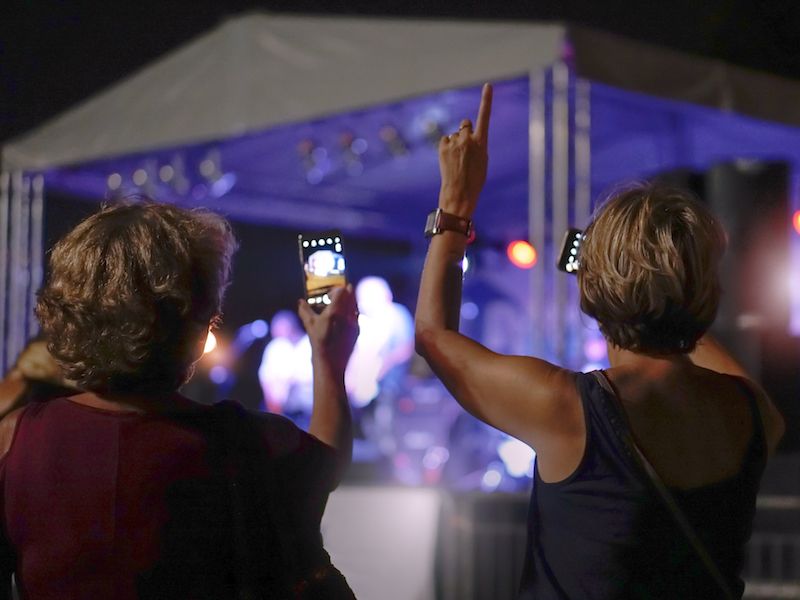
Summer has finally arrived, and you’re ready for all those things we’ve been getting excited about: swimming in the pool, going to the beach, and a few activities that can injure your hearing. You could find yourself in external scenarios or exposed to other loud sounds this summer that can be hidden dangers to your hearing. Any sounds over 80 decibels could harm your hearing, while swimming in pools or other bodies of water can bring about permanent loss of hearing. To keep your hearing safe this summer, you have to be aware of your surroundings and take precautions. Here are 6 of the summer’s concealed hearing dangers.
When You Travel to Concerts, Use Ear Protection
Whether you’re at an indoor arena or an outdoor show venue you still should wear ear protection during live music. Live music can have volumes over 90 decibels, even at outdoor concerts, which is inside the danger zone of hearing loss. That’s why it’s always a good plan to use earplugs whether you’re seeing a concert outdoors or indoors. Earplugs reduce the sound while still letting you to hear and enjoy the music. If you’re going to a concert with young kids, consider getting them a heavy duty set of earmuffs because kids have more sensitive ears than adults.
It’s More Than Just Loud at Fireworks
Honestly, there are a lot of reasons to avoid fireworks in the summer. We’re not talking about the professional 4th of July fireworks show, we mean the backyard fireworks which every summertime cause hundreds of injuries. Backyard fireworks get to decibel levels of over 155 which can damage your ears along with causing hand injuries, loss of vision and home fires. This year, on the 4th of July, enjoy the show from a little further away and leave the fireworks to the pro’s.
Mowers Can Bring About Hearing Loss
If you love to take care of your lawn, your edger, trimmer, and mower are your best friends. But have you ever noticed how off your ears feel when you get done, making everything sound muffled? That’s because the lawn tools, which are constantly loud, have a slow and steady impact on your hearing. You’ve probably noticed landscapers wearing some form of hearing protection, you should take a hint from them and use earplugs or earmuffs next time you attend to your yard to ensure your ears doesn’t get injured.
How to Protect Your Hearing When You’re at Beaches And Pools
Huge numbers of people suffer from swimmer’s ear every summer, which happens when bacteria-packed water gets trapped inside your ear canal. The bacteria then infects the ear, leading to painful earaches and swelling. It’s not exclusively lakes and rivers that hold these bacteria, they can also be found in pools and hot tubs if they aren’t cleaned and treated properly. No lasting damage should occur if you get your ears checked out by a hearing expert. To prevent swimmer’s ear, though, you will want to wear special swimming earplugs in the pool and get your pool water tested to be sure the chemical balance is safe.
Water Sports And Boats
Summertime is a taste of freedom for those who love to be out on the water, smelling the salt air of the ocean or the fresh breeze of the lake. But, jet ski and boat engines can be loud,they can get up to over 100 decibels. Lasting hearing injury can happen after only 15 minutes of exposure to that much noise. Again, it’s really in your best interests to wear a pair of disposable, foam earplugs while you’re out on the water to make certain you don’t inadvertently harm your ears.
Your Hearing Can be Harmed by Car Races
It doesn’t matter what type of auto racing you enjoy, stock cars, midgets, motorcycles, drag racing, Formula 1. Every one of them can cause a huge challenge for your hearing if you attend many races this summer season. 120 dB is well within the danger zone for hearing impairment and lots of races go way above this. Earplugs are your best bet at these races, whereas your children should definitely wear the earmuffs we mentioned earlier. Because you may not get to enjoy the sounds of any races in the future if you don’t.